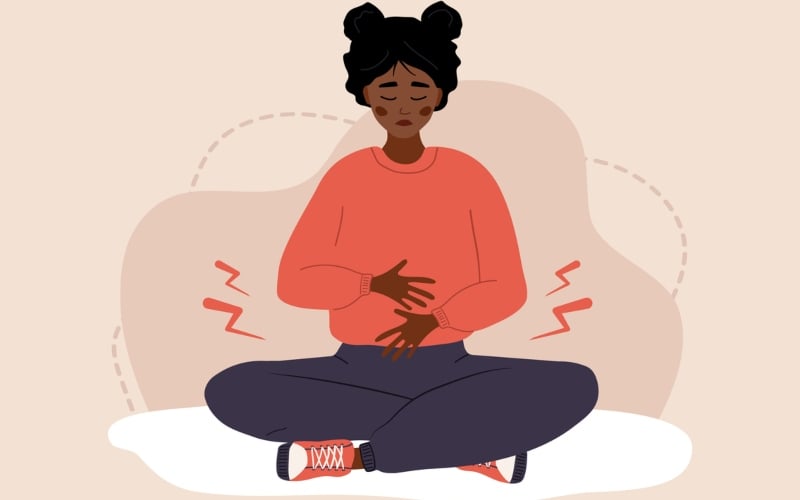CANNABIS CULTURE – New York City cannabis couriers pedal on (despite the stumbling state).
With no progress made New York State’s framework for adult-use sales, its governor recently resigning due to sexual assault allegations, and the delta-variant making waves in the media, the message for legacy operators in New York is to keep providing cannabis to the people.
Jazzy picked up a job delivering cannabis on his bicycle at the start of the pandemic. “The job was always very coveted by the company I worked for. I remember them talking before the pandemic, and it was like if you were a new hire you had to fight to get shifts,” says Jazzy. “And then once the pandemic hit, a bunch of people left, and suddenly they were scrambling for riders and then they also shortened their hours.”
This put more strain on people who stayed with the company. “It was chaos,” says Jazzy. “People were buying like 16 eighths at once because they weren’t sure how long we were gonna be open, and we weren’t sure how long we were gonna be open.”
Jazzy went to graduate school in Southern California and moved to New York City in 2014 to continue his acting career. Once the lockdown happened, he reached out to a few friends about delivering cannabis. Jazzy says this was a huge life saver since many of his other side jobs had shut down, including background work at the Metropolitan Opera, teaching acting, working as an official Batman for DC comics, and catering.
Jazzy says at first it sounded unsafe and had heard people talking of a friend being robbed or getting into a fight with a customer over the product. “Once I started doing the job, I never really experienced anything negative, and I still really haven’t,” says Jazzy. “It always feels so inviting and I never really met anybody that made me feel like I shouldn’t do this job anymore.”

His legacy company operates on code names and encrypted messaging apps to keep everyone safe. Even at company parties, Jazzy would give the bar bouncer his codename and only go by that name when inside of the party. Dispatchers and riders rotate to keep anonymity as well. Although everyone is protected, Jazzy says it can also be alienating because it’s not like a normal job where you make work friends.
On top of that, the job can get grueling. “When you get run after run after run, you’re just constantly biking trying to keep up,” says Jazzy. “And sometimes you can be in Manhattan, and you’re on a run in the financial district, but then you’d have to get all the way back up to the Upper West Side.”
Despite all this, Jazzy loves the financial freedom that he has never had with any other side hustle. “I’ve actually been able to save money this past year, which I’ve never had savings, especially in New York City.”
“It’s such a sweet deal right now that I worry that once legalization really takes effect, and if you’re on a W2 doing this, then it might just become a menial minimum wage job, in which case, it’s not just a grueling job, now you’re barely getting paid for it. Whereas now, it’s all cash and it’s all untaxed,” says Jazzy. “Even if you have a slow day, you still get to keep all that money that you’re earning.”
According to some estimates, when fully up and running, cannabis sales will produce up to $436 million a year in revenue for the state of New York, which has a $30 billion deficit that it is trying to recover from after the COVID-19 Pandemic.
New York State still has not nominated members of the Cannabis Control Board, which will run the application process and day-to-day regulations of the New York Cannabis Industry. This leaves legacy companies, like Jazzy’s, in a regulatory limbo.
“Depending on where you are, in your journey, there are a number of things that prospective licensed applicants, particularly in New York, can and should get started on now,” says Sheri Tarr, founder of ’68 Partners, which works as a regulatory navigator for clients in the Cannabis and Life Sciences industries. “And I would say the first thing would be to call a consultant that lives and breathes these regulations and has a keen sense of where the regulatory puck is probably going in New York.”
Tarr says, “Now is the time to get the fundamentals in shape, if you will, so that when the [Request For Applications] drops, you are better positioned to undertake what is anticipated to be a credibly comprehensive licensing application process in probably one of the most fiercely competitive markets in the world.”
Tarr started her career in sales and marketing with Big Pharma, where she held executive positions, and was involved in launching FDA regulated products around the world and had financial responsibility for that.
“So, I had a front row seat to how FDA regulated products are marketed, how they’re manufactured,” says Tarr. “And then I became an attorney and spent my career in the courtroom suing the pharmaceutical industry, for regulatory violations, deceptive marketing and defective manufacturing.”
Eventually, Tarr realized that she wasn’t part of the solution, “Which was how do we compliantly commercialize these appropriately regulated products? How do we do that in a way that balances the interest of the consumer, which is safety and effectiveness; and the businesses, which is at the end of the day, it’s capital, it’s money.”
Tarr says, “You can’t be a jack of all trades, it’s too complex. But what you can do is humbly recognize that you know what you know. So, some of my best relationships with clients is they are experts in their particular brand. They may be expert cultivators; they may be the expert with their particular CBD product. And I leverage their expertise with my expertise in compliance and commercialization and how do we build this cultivation business? Or how do we build this brand? How do we build that in a sustainable way that is inextricably linked to compliance?”
Tarr also volunteers as the Director of the Regulatory Committee for the New York City Cannabis Industry Association, which is open to anybody in the cannabis industry to join. “We do a lot of work. that informs stakeholders and potentially regulators, and it’s a tremendous opportunity to network and meet people, even with opposing views, which we welcome,” says Tarr.
Jazzy’s legacy company is starting to make promotional content and there have been talks about organizing promotional events. “Which I think is really the only way that they’re going to be able to survive. No matter how big your weed service is, it’s going to be based on the customers. And it’s going to be based on ‘we like this experience of you coming to my apartment and having everything available to me.’”
Original Article










